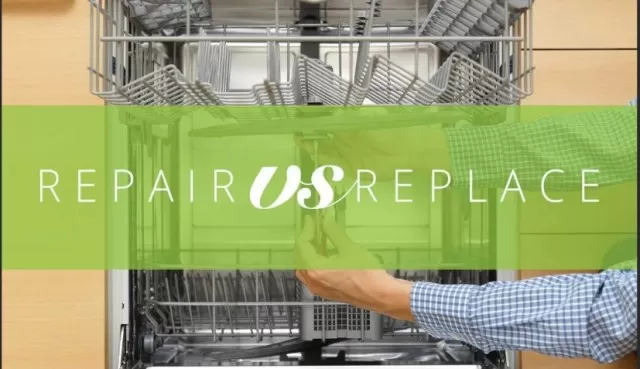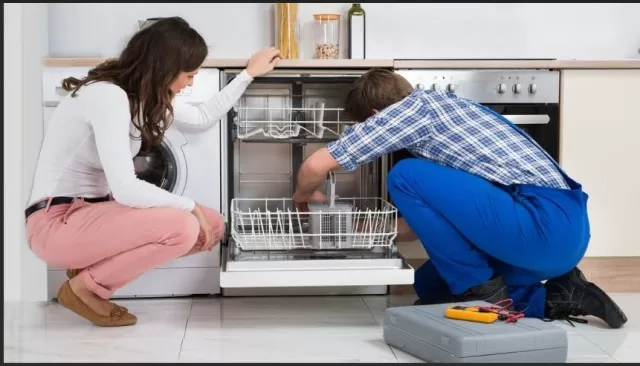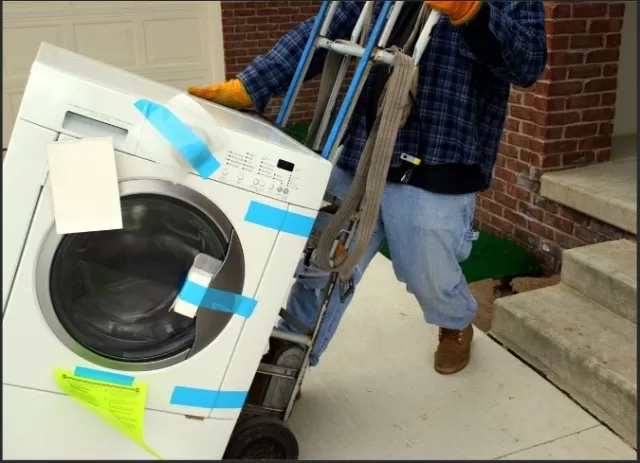When to Replace, Not Repair, Home Appliances. The allure of squeezing every last ounce of life from your household appliances is understandable. After all, replacing them can be a significant investment.
However, there are moments when prudence dictates that it’s wiser to embark on the journey of shopping for replacements rather than opting for yet another repair.While it’s natural to want to extend the life of your appliances, there are situations where replacing them makes more economic and practical sense. Being mindful of the signs and considering factors like repair costs, safety, and energy efficiency can help you make informed decisions and ensure your household continues to run smoothly.
Choosing Between Replacement and Repair: When to Consider Upgrading Your Appliance Instead of Fixing It

For those who aren’t particularly skilled at DIY repairs, deciding between repairing or replacing a malfunctioning appliance can be a daunting task, especially once the warranty has expired.
Here are some instances where investing in a new model might be the wiser choice, rather than attempting to resolve the issue through repairs.
Approaching the End of the Road: Knowing When to Replace Your Home Appliance
Every home appliance comes with a built-in estimated lifespan, and when your machine is edging closer to its maximum durability, it might be signaling that it’s time for a replacement.
Typically, dryers, refrigerators, and electric ranges can be expected to function reliably for approximately 13 years, while washers tend to have a solid lifespan of around a decade. Dishwashers and microwaves usually offer a good run of about nine years.
However, it’s essential to remember that these estimated lifespans can vary depending on how frequently you use the appliance.
If you have a large family or run your washer and dryer on a daily basis, you may find yourself needing a replacement sooner than expected.
Balancing the Books: When to Opt for Replacement Over Costly Repairs

Here’s a golden rule to consider: if the cost of repairing an appliance surpasses 50 percent of the price of a brand-new replacement, it may be a sensible decision to invest in a newer model, provided your budget permits.
However, this 50 percent benchmark should also take into account the age of the appliance. If your appliance is only a few years old and the warranty has recently expired, opting for a repair is often the more cost-effective choice.
Performance Matters: Recognizing When Your Appliance Is Falling Short
At times, a significant problem with an appliance becomes readily apparent – like discovering your clothes are still damp after a full dryer cycle, despite cleaning the vent pipe, or finding that your dishwasher refuses to start.
In such cases, it’s evident that a problem demands immediate attention. .
However, there are instances when an appliance’s performance has gradually deteriorated over the years, often without any conspicuous signs of trouble.
This subtle decline could be a signal that, while the appliance might still be technically operational, it’s time to begin exploring replacement options for better efficiency and reliability.
Prioritizing Energy Efficiency: When Upgrading to a New Appliance Makes Economic and Environmental Sense

One of the primary benefits of modern appliances is their focus on energy efficiency.
This design feature not only contributes to a healthier planet but also translates into substantial savings on your monthly utility expenses. If you’re keen on reducing your electricity bills over time, contemplating the purchase of a new, energy-efficient model is a wise move.
While parting with an old appliance might raise concerns about environmental impact, it’s worth noting that many of these retired units can be recycled, lessening their overall ecological footprint.
In this way, making the switch to an energy-efficient appliance aligns with both your economic and environmental interests.
*The information is for reference only.